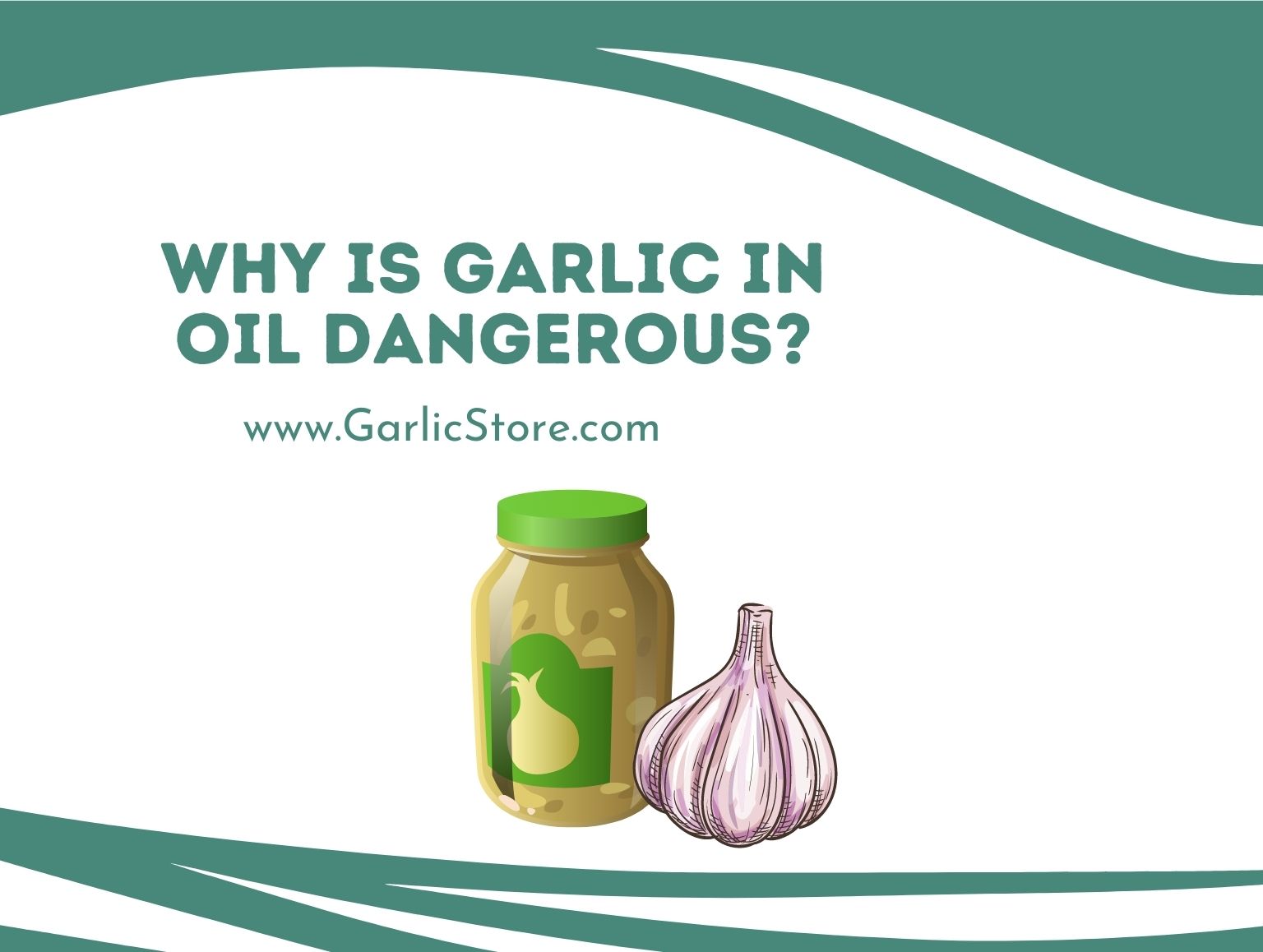Garlic is a flavorful vegetable that offers health benefits and has various uses as a natural remedy and home remedy, turning an ordinary dish into a culinary delight. It is best when used as raw garlic for overall wellness. However, there are many methods of storing garlic, including soaking it in olive oil.
According to the Food and Drug Administration (FDA), storing garlic in oil can be dangerous, especially if not well-handled. Garlic is a low-acid vegetable that encourages the growth of clostridium botulinum in an oxygen-free environment.
Eating garlic-infused oil results in food-borne botulism, which is potentially fatal.
What Is Botulism?
Botulism is a food-borne illness resulting from the toxins produced by food-inhabiting bacteria. It attacks the nervous system and causes muscle weakness or paralysis. Due to its effects on the muscles of the lungs, botulism can be fatal.
It’s hard to know about the existence of bacteria in food since it does not affect the flavor of the garlic. So, you can’t tell when garlic-infused oil is dangerous to your health. But you can know you have it when you get blurred vision.
Why Symptoms of Botulism
After exposure to botulinum spores, it takes only a few hours to several days to develop the symptoms of botulism. The following are the most apparent symptoms of botulism:
- Blurred or double vision
- Facial muscle weakness
- Slurred speech
- Drooping eyelids
- Breathing difficulties
- Difficulty swallowing
- Breathing difficulties
Why Relief from Botulism is Crucial
Why relief from symptoms is delayed without proper medical intervention, as the toxin affects the nervous system progressively.
Why Treatment is Essential
Why treatment for botulism must involve antitoxin administration to neutralize the effects and support recovery.
Why Does Botulism Bacteria Thrive in Garlic Oil?
The clostridium botulinum bacterium is part of the environment and exists in foods of all kinds. However, it’s not harmful since regular food doesn’t have the conditions the bacteria need to thrive.
Botulism spores are virtually locked down in plenty of oxygen and won’t cause botulism poisoning. However, homemade garlic oil creates the perfect conditions for the bacteria to thrive and release toxins.
Botulism bacteria need a non-acidic and oxygen-free environment to thrive. For example, putting garlic in oil and leaving it at room temperature for several days incubates botulism spore leading to the development of toxins.
Even though keeping garlic oil in a refrigerator may slow everything down, it doesn’t necessarily prevent botulism. Therefore, refrigeration is only a temporary measure.
How Does Garlic Oil Encourage Botulism Poisoning?
Despite being a low-acid food, garlic in oil provides the perfect conditions for botulism poisoning. Garlic cloves have a high-water content, and bacteria thrive in water. Pour olive oil over it, and you block oxygen from it. Maintain room temperature for a couple of days, and botulism spores multiply exponentially.
Is Cooked Garlic Any Better?
Raw garlic is perfect. Garlic oil is good. Cooked garlic is better. Regardless of your variation, storing garlic in the right conditions is crucial. Without the required attention, garlic may cause botulism.
Cooking garlic doesn’t destroy the spore. Therefore, roasting and sautéing are not solutions to botulism. However, heat may prevent botulism poisoning by eliminating toxins. Thus, according to the World Health Organization, the most dangerous foods are those assembled in low-oxygen conditions and consumed at room temperature.
Are Commercially-Prepared Oils Safe?
Commercially prepared oils are mostly safe. That’s because commercial food producers use acidification to prevent garlic oil from acting as an incubator for harmful bacteria.
For home canning, you can add vinegar to garlic-infused oil. Or you could freeze the garlic in oil for consumption in the future. However, eating raw garlic in oil is the best way to go about it.
How Frequent Is Botulism Poisoning?
Are you thinking of excluding garlic from your diet? Think again. There is a very low likelihood of suffering food-borne botulism.
For example, in 2016, the Centers for Disease Control (CDC) reported only 29 food-borne botulism cases in the U.S.
But 19 of the cases came from an incident involving illicit alcohol production in prison in Mississippi. The rest of the cases had to do with home canning and not homemade garlic oil.
Should I Still Care About the Danger Posed by Garlic in Oil?
Yes, the danger of garlic in oil should still concern you. The toxins produced by botulism spores are potentially life-changing, if not life-threatening.
Granted, you may not have heard of someone who has suffered after consuming a garlic-in-oil concoction. However, it was a severe problem in the 1980s.
Following a string of cases of foodborne illness, the U.S. government instituted measures to safely process food to prevent botulism.
So, when preparing garlic oil at home, ensure you observe all prevention measures and seek prompt treatment to avoid falling prey to botulism’s devastating effects.
Sources
https://www.canr.msu.edu/news/stinking_facts_about_garlic
https://www.freep.com/story/life/food/recipes/2015/07/09/garlic-oil-storing-food-safety/29809647/
https://www.delightedcooking.com/is-it-safe-to-store-garlic-in-oil.htm
https://ask.usda.gov/s/article/Can-you-get-botulism-from-garlic-in-oil
https://web.uri.edu/foodsafety/files/uc_davis_garlic.pdf
https://www.eatortoss.com/homemade-garlic-infused-oil-may-look-appetizing-but-be-careful/
https://www.hrfoodsafe.com/article-detail.php?id=223

